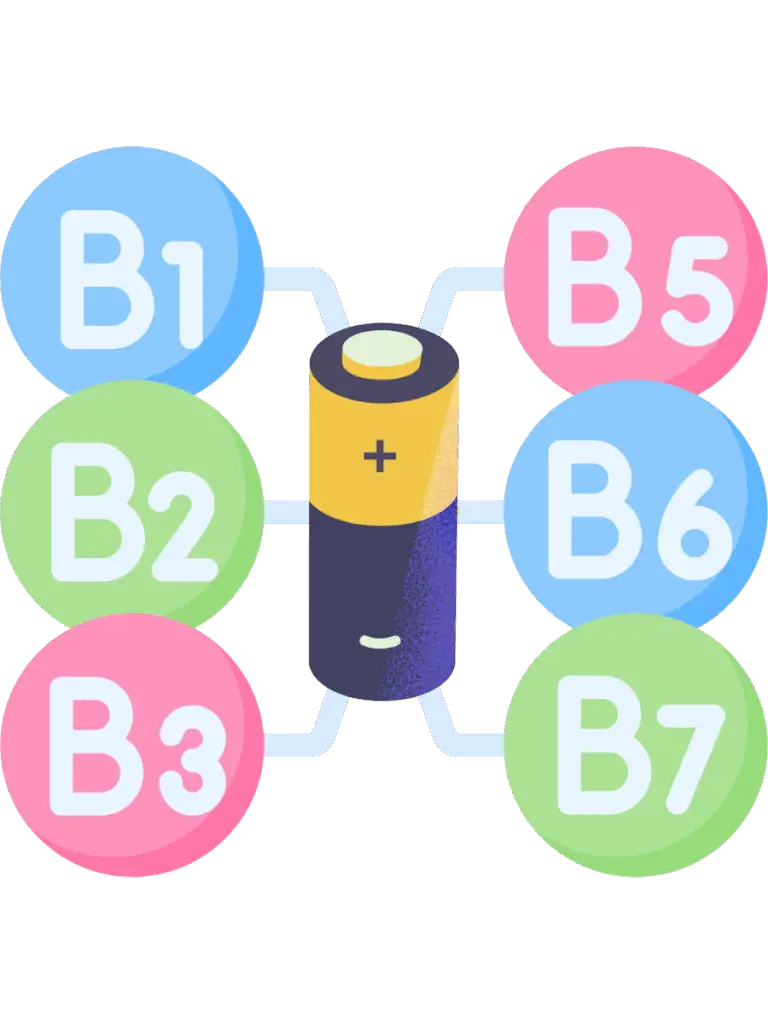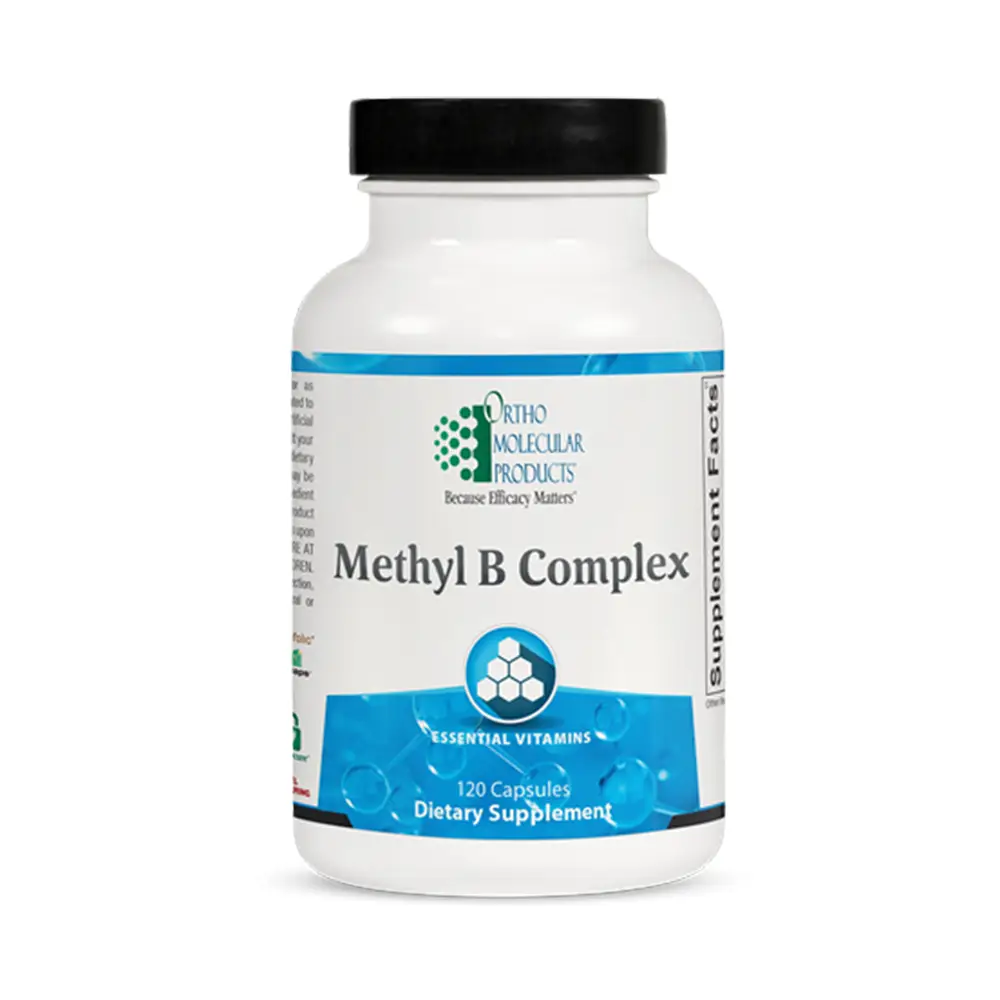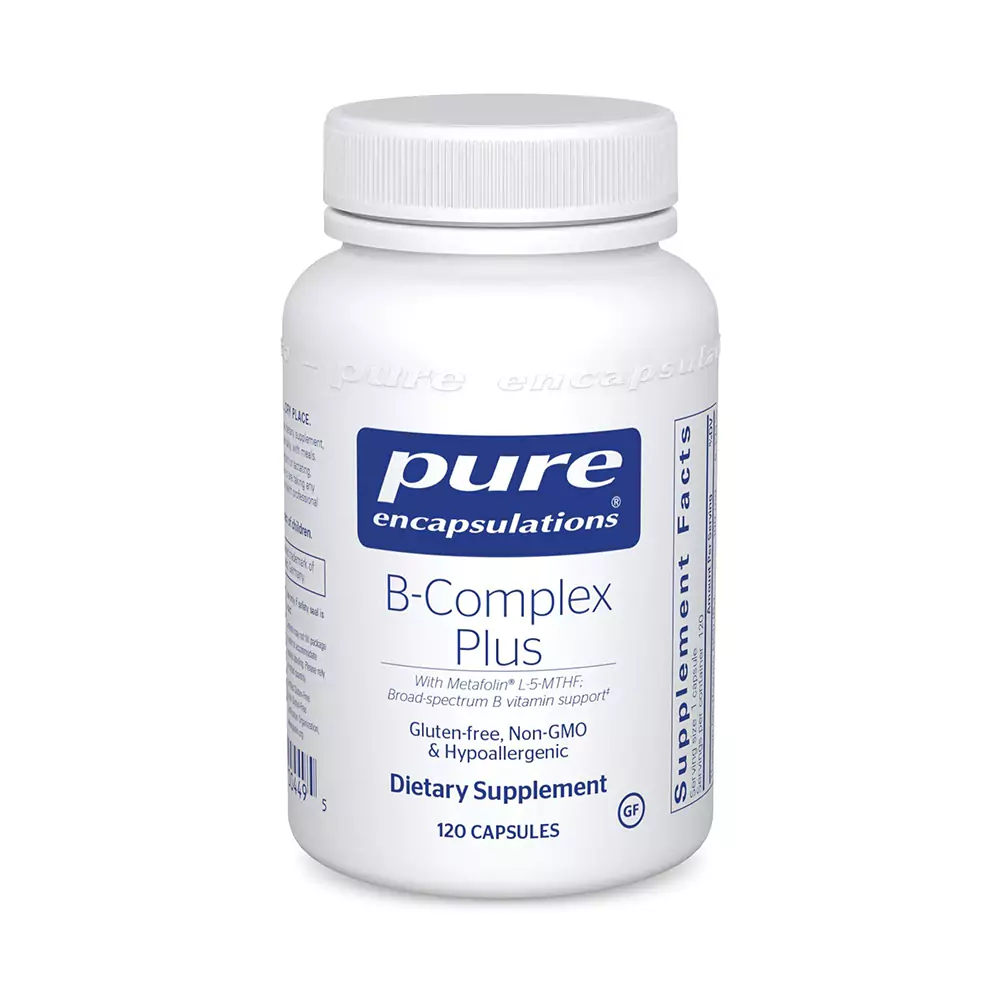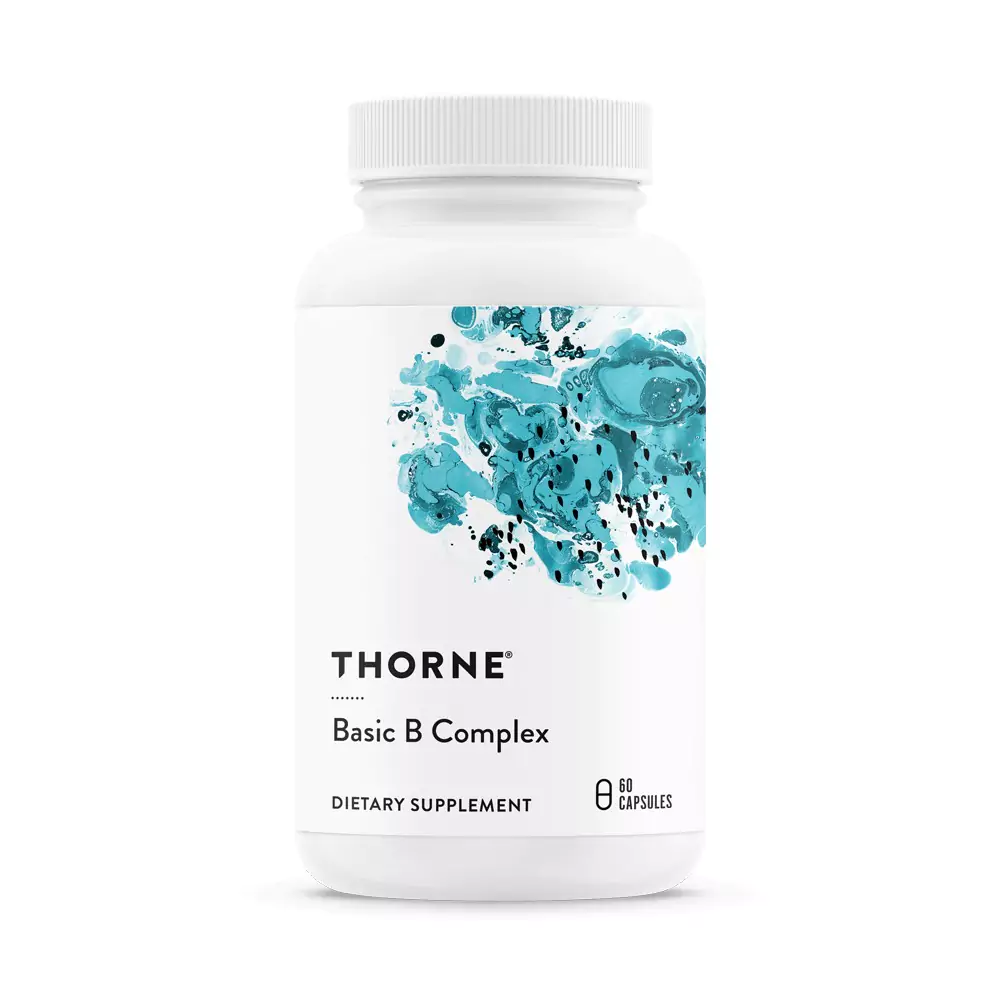
Yes, but not like caffeine.
B vitamins don’t “stimulate” energy, they enable it. Think of them as spark plugs in your metabolic engine: they convert food into cellular fuel (ATP) without over-revving your system.
Unlike energy drinks that hijack adrenaline, B vitamins work harmoniously with your biology for endurance that lasts.
Jittery energy drinks and artificial stimulants can put your body into overdrive. B vitamins deliver clean, consistent energy by fueling your body’s natural processes.
No spikes, no crashes, just steady vitality.
No, they enable energy production.
B vitamins convert food into ATP (cellular fuel) but don't stimulate like caffeine. They support sustainable metabolic energy without crashes.
Unlike caffeine (15-min rush), B vitamins build effects over days/weeks.
Consistent use optimizes enzyme pathways for cumulative energy benefits.
Avoid B-complex near bedtime. B6/B12 may interfere with melatonin.
Take with breakfast to align with natural energy cycles.
Cooking destroys 40-60% of folate (B9)/thiamine (B1).
Supplements guarantee precise, bioavailable doses.
Look for:
There are 8 essential B vitamins, each with a unique role:

Getting enough B vitamins daily is challenging through food alone.
Cooking destroys up to 50% of sensitive B vitamins like folate (B9), while restrictive diets or busy lifestyles further increase deficiency risks.
Many people turn to high-quality B-complex supplements that deliver all 8 essential B vitamins in precise, bioavailable doses, ensuring consistent energy support without meal planning.

Methyl B Complex provides bioavailable B vitamins to support energy production, brain function, and overall wellness.
This formula promotes optimal methylation, cardiovascular health, and nervous system function by featuring active forms of B12, folate, and other essential B vitamins.
$39.20

B-Complex Plus is a comprehensive formula of all essential B vitamins in bioactive forms, designed to support energy production, cognitive clarity, and cardiovascular wellness in one capsule.
$42.00

Thorne Basic B Complex supplies all eight essential B vitamins in bioactive (tissue-ready) forms, plus choline.
It’s designed to support energy production, the nervous system, and metabolic function with fewer conversion demands.
$26.00





